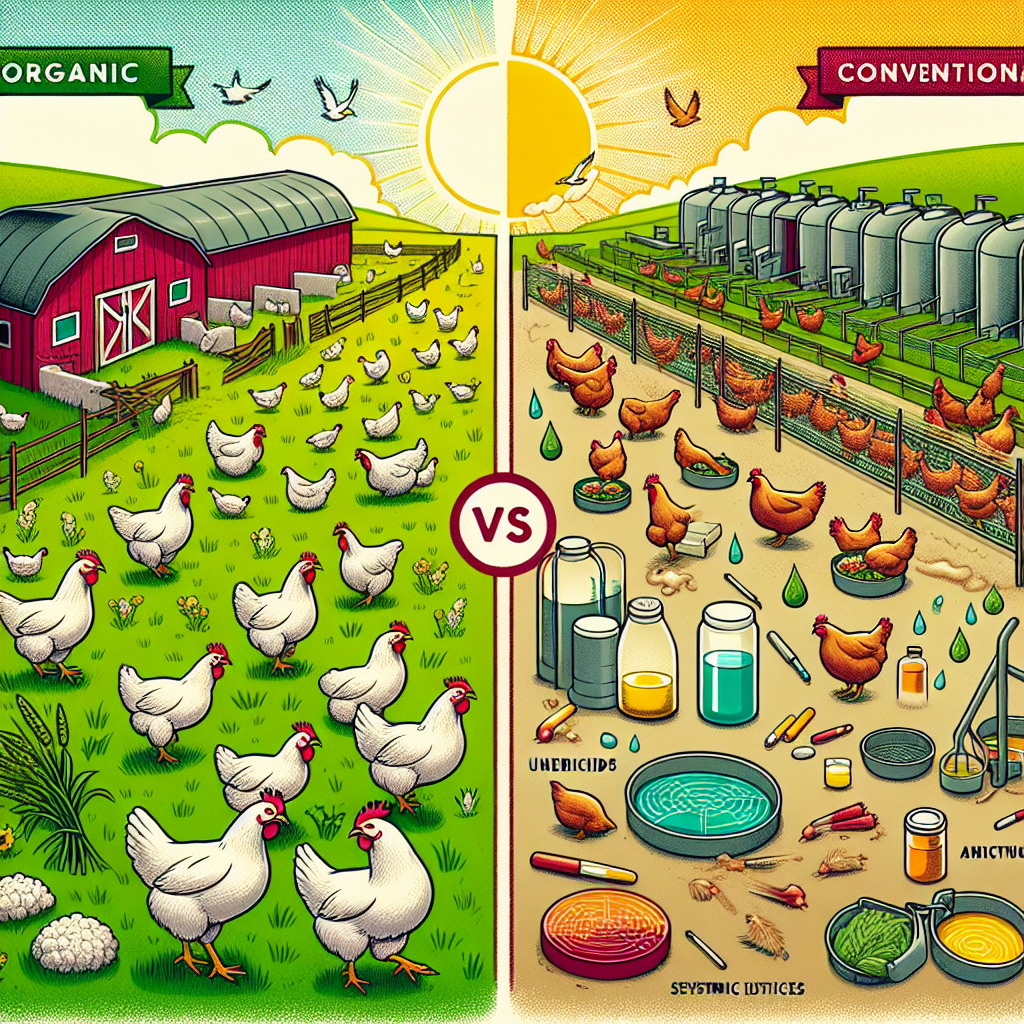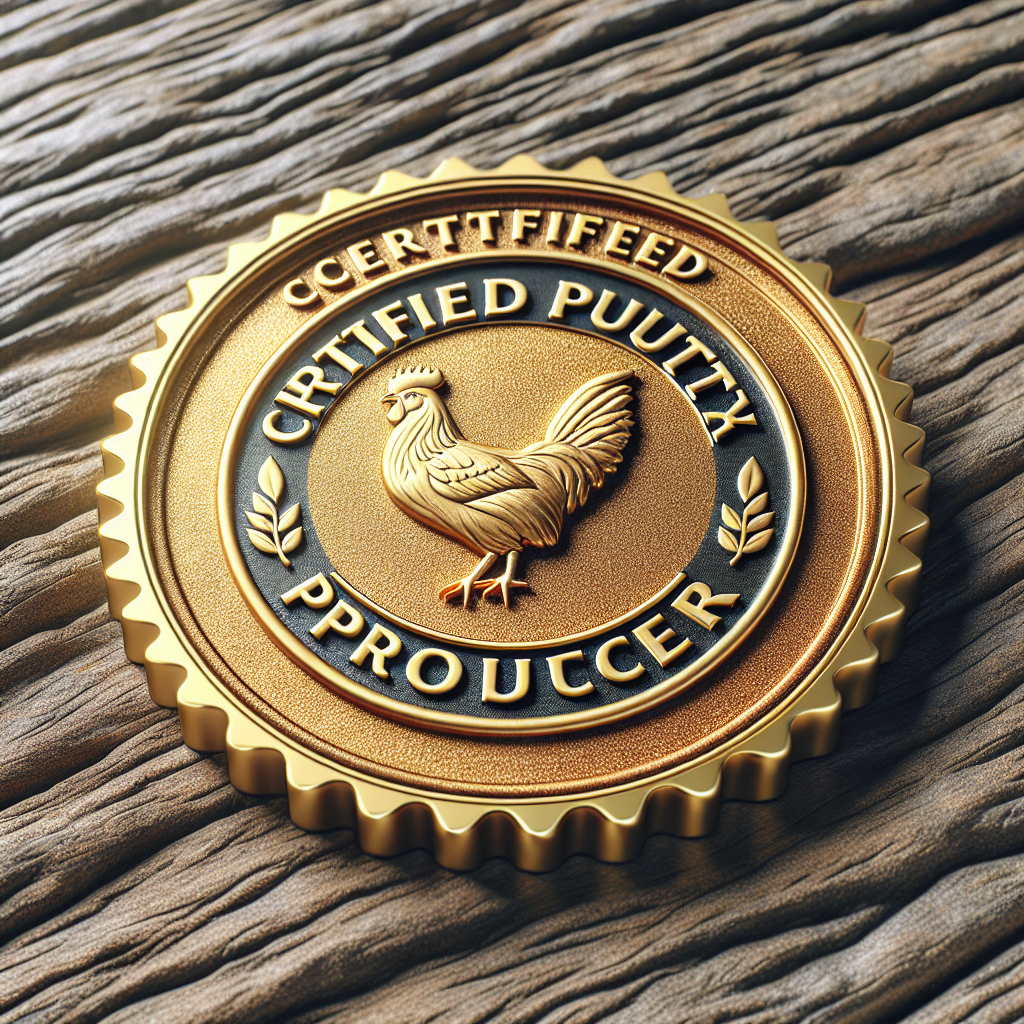If you’ve ever wondered about the differences in regulations between organic and conventional chicken farming, look no further. In the world of poultry, there are distinct rules and guidelines that govern each method of farming. Whether you’re curious about the use of antibiotics, the feed given to the birds, or the overall farming practices employed, this article will provide you with an informative overview of the contrasting regulations that exist between organic and conventional chicken farming. So, let’s get started and uncover the fascinating world of chicken farming regulations.
Organic Chicken Farming Regulations
Definition of organic chicken farming
Organic chicken farming refers to a method of raising chickens that adheres to specific regulations and guidelines set forth by organic farming organizations and government bodies. Organic chicken farming emphasizes the use of organic practices and materials, which focus on maintaining the health and well-being of the chickens, promoting sustainable farming methods, and reducing the impact on the environment.
Certification process for organic chicken farms
To be recognized as an organic chicken farm, farmers must undergo a certification process. This involves submitting detailed documentation about their farming practices, feed sources, and animal welfare protocols to a certified organic agency. The agency will then conduct an on-site inspection to ensure that all organic farming standards are being met. Once approved, the farm can display the organic certification logo on its products, providing assurance to consumers that the chickens have been raised according to organic standards.
Standards for organic chicken feed
In organic chicken farming, the feed given to the chickens must comply with specific standards. Organic feed should be sourced from organic-certified suppliers and must not contain any synthetic pesticides, genetically modified organisms (GMOs), antibiotics, or growth hormones. Instead, the chickens are fed a diet consisting of organic grains, fruits, vegetables, and other natural ingredients.
Limits on antibiotic use
One of the key differences between organic and conventional chicken farming is the use of antibiotics. In conventional farming, antibiotics are commonly used to promote growth and prevent disease outbreaks. However, in organic farming, the use of antibiotics is strictly regulated. Antibiotics can only be used in organic chickens if it is necessary to treat a diagnosed illness, and withdrawal periods must always be observed to ensure that no antibiotic residues are present in the chicken’s system.
Outdoor access requirements
In organic chicken farming, providing access to the outdoors is a crucial requirement. Chickens should have the opportunity to engage in natural behaviors such as pecking, scratching, and foraging outside. Outdoor areas should be safe, secure, and free from pesticides or other harmful substances. The chickens’ access to the outdoors helps promote their overall health and welfare and allows them to express their natural instincts.
Health and welfare standards
Organic chicken farming places a strong emphasis on the health and welfare of the animals. Chickens must be raised in a clean and sanitary environment, with adequate space, ventilation, and natural lighting. Farmers need to implement strategies to prevent disease outbreaks and ensure that any necessary medical treatments are in line with organic standards. Additionally, the use of physical alterations, such as beak trimming or toe removal, is not allowed in organic chicken farming.
Processing and labeling requirements
When it comes to processing and labeling, organic chicken farmers must follow strict guidelines. The processing facilities must be certified and ensure the segregation of organic and non-organic products. The labeling of organic chicken products should clearly indicate the organic certification logo and provide accurate information about the product’s organic status. This transparency allows consumers to make informed choices about the chicken they purchase and consume.
Inspection and enforcement procedures
To maintain the integrity of organic chicken farming, regular inspections are conducted by organic certifying agencies. These inspections verify that farms continue to comply with organic standards and identify any areas that may need improvement. If any violations or non-compliance issues are found, farmers may face penalties or even lose their organic certification. The enforcement of regulations is crucial to ensure that organic chicken farming remains trustworthy and aligns with the values and principles of organic agriculture.
Transitioning from conventional to organic farming
For conventional farmers interested in transitioning to organic chicken farming, there is a specific process to follow. The transition period, typically lasting three years, allows the farm to meet the organic requirements gradually. During this time, the land and animals must be managed using organic practices, but the products cannot yet be labeled as organic. This transitional phase provides conventional farmers with the opportunity to learn and adapt to organic standards, ensuring a successful transition to organic farming.
Implications for small-scale farmers
Organic chicken farming regulations can have a significant impact on small-scale farmers. While the regulations promote the use of sustainable and environmentally friendly practices, they can also present challenges for smaller operations. The certification process, additional costs associated with organic feed, and strict adherence to regulations may create barriers for small-scale farmers. However, with proper support and guidance, small-scale farmers can benefit from organic chicken farming by accessing niche markets and appealing to consumers who prioritize sustainable and ethically sourced products. The cooperation between small-scale farmers and organic certifying agencies is essential to enable a more inclusive and diversified organic farming sector.




